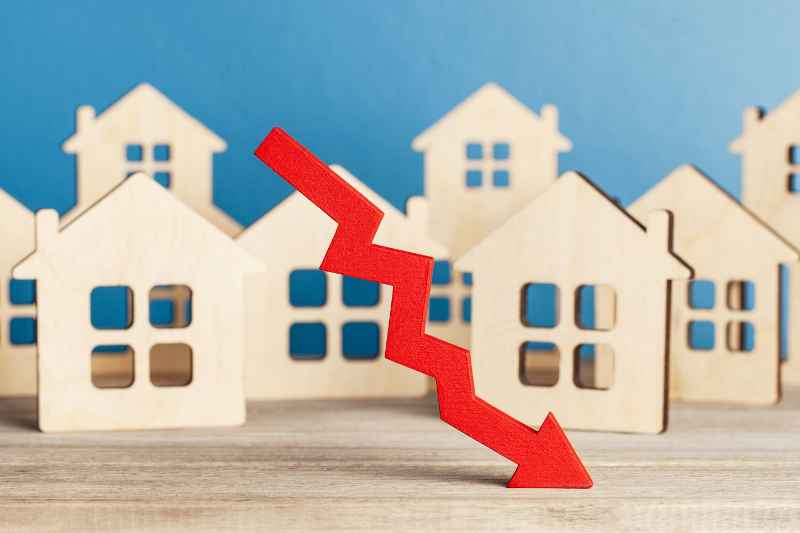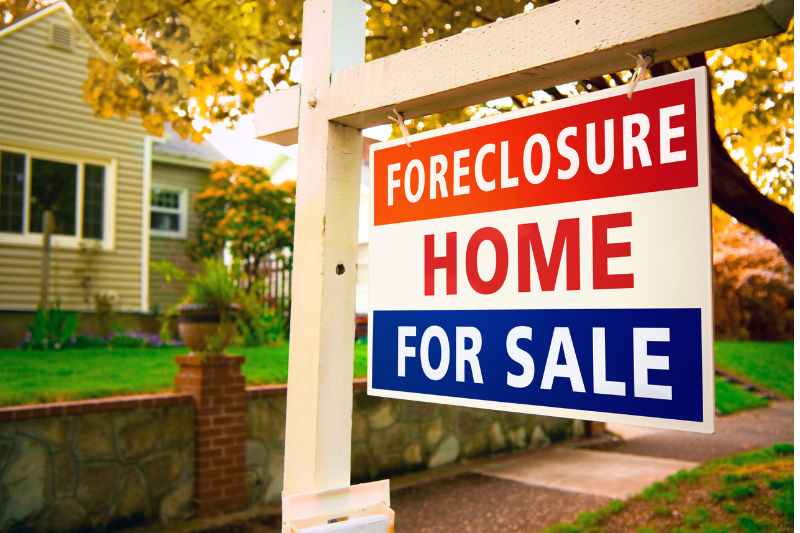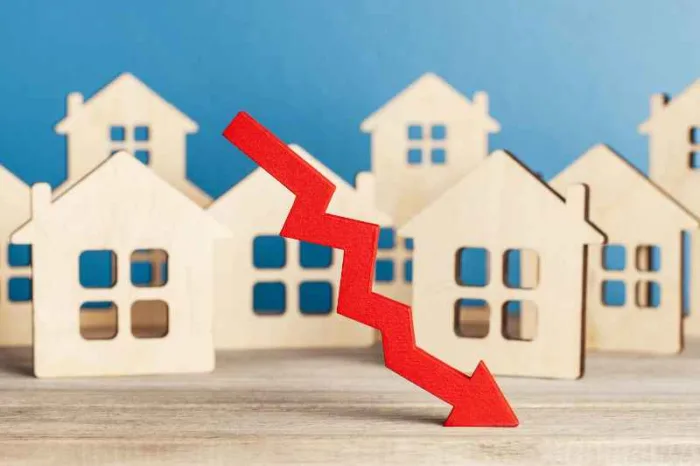
Disclaimer: This content is for informational purposes only, you should not construe any such information as legal, tax, investment, financial, or other advice. Nothing contained on our site constitutes a solicitation, recommendation, endorsement, or offer by ButterflyMX or any third-party service provider. ButterflyMX is not a financial adviser. You should always seek independent legal, financial, taxation, or other advice from a licensed professional.
Recession real estate is a scary thing to hear as a real estate investor and developer. However, the most turbulent phase of the real estate cycle is a natural one that has been studied for decades. While it’s true that a recession in our modern times brings with it new and unprecedented challenges, we also have tons of data to help us navigate this phase of the cycle.
In this guide, we dive into the specifics of a recession in real estate. Next, we explore the economic impact of a recession in real estate. Finally, we provide a few tips on navigating a real estate recession.
This post covers:
- What happens to real estate in a recession?
- Is a recession good for real estate?
- What to do in a recession real estate
What happens to real estate in a recession?
A recession real estate definition is when property values decrease because there’s a serious lack of demand. Recessions in real estate can also occur when too many properties have been developed at once and there’s not enough demand to buy them.
Recessions may make it necessary to reduce rental rates at multifamily properties in order to fill empty units and make them more enticing to prospective residents. However, the opposite has been observed as happening, and rents can surge at an all-time high due to heavy demand. Which will happen to your rental property? That all depends on the area your property is located. If you live in a location where there are a lot of jobs that are not affected by the recession, your rent will remain steady and possibly surge.
Will house prices go down with a recession?
Housing prices will almost certainly go down in future recessions, just as they have done during previous real estate recessions. Conversely, interest rates typically increase before and during a recession.
How much did house prices drop in the recession of 2008?
The 2008 recession (known as the Great Recession) saw housing prices drop upwards of 20%. The Great Recession was one of the longest in history and lasted a total of 18 months.
When studying previous recessions in order to get a feel for the next one, it’s important to look at the cumulative averages for all of them. The 2008 recession for real estate might not be identical to the next recession.
Is a recession good for real estate?
By definition, a recession may not be good for the real estate market as a whole. However, the optics change when you look at individual real estate developers. Depending on where you stand as a developer and whether or not you’ve taken all of the necessary precautions, a recession might be beneficial for your investments.
Additionally, for multifamily properties, the number of renters may increase (or remain stable) during a recession because it’s so difficult for the average person to buy a home.

Is it bad to buy a house before a recession?
If you’re asking yourself, “should I buy a house now or wait for the recession?” then the answer depends on your current financial status. You may be able to purchase properties at their cheapest during a recession. However, you need to be prepared for extremely high-interest rates.
If financially capable, buying a property outright without taking on loans or a mortgage may be the soundest strategy. If only that were an option most real estate developers could afford.
Learn about the 4 stages of the real estate cycle:
What to do in a recession real estate
Preparation is key to handling a recession in real estate to the best of your ability. As such, most of our tips are what you can do before a recession has officially occurred. But if the real estate industry is in the middle of a recession, you should instead prepare for the next phase, which is the recovery phase.
Recession real estate preparation tips:
1. Study the past
The next recession is a long shot from the first. There have been 48 recessions throughout US history. The last 11 since 1948 are probably the ones worth familiarizing yourself with. Despite how much changes every decade, you can still gain a lot of insight.
By studying previous recessions, you can learn:
- How quickly the economy recovered
- The projected economic devastation
- Warning signs of recovery
- Decreases in property values
- Which markets recovered first
- Strategies that successful real estate developers used for their properties
2. Cut unnecessary expenses
While preparing for a recession in real estate, review your current properties and see what isn’t working out as an investment. Cut everything that’s costing you extra money and won’t affect your property’s worth. This can be tricky to navigate because where you cut costs will only specifically apply to you and your unique property.
You might want to cut back on expenses by:
- Implementing smart lights to cut back on electricity
- Prioritizing energy-efficient appliances
- Reducing amenities that your residents aren’t using
- Automating tasks throughout your property
- Repairing leaky plumbing

3. Prioritize patience
Much of surviving a recession as a real estate developer involves patiently observing. Stay connected to the real estate industry online. See what other developers and property owners are experiencing.
If you’re planning on just riding out the recession without any major investment decisions, then continue saving as much capital as possible for the recovery phase of the real estate cycle.
By staying up to date, saving funds, and being patient, you’ll know when the time is right to start investing again.
4. Continue marketing yourself
Being patient doesn’t mean being quiet. Continue to promote yourself, your successes, and your brand as much as possible. Thanks to the internet, it’s easier than ever to put your name and brand out there without spending a penny.
In addition to observing what other investors are planning and doing, put your name out there for future collaborations. Pitch ideas and hear pitches on future investments for when the real estate market recovers. Better yet, see if you can form partnerships that will take advantage of the low property values during the recession.
Remember: There’s more to being a developer than purchasing or constructing properties.
Takeaways
- Recession real estate means property values fall, demand drops, and interest rates increase.
- A recession may sometimes benefit buyers and developers in the real estate industry by offering cheaper properties.
- Tips that might be useful to prepare for a recession include studying previous recessions, reducing expenses, and continuing to market yourself as a developer.






